LYNNWOOD, Wash.—The City of Lynnwood held a ribbon cutting ceremony on Monday, July 15, to celebrate the opening of the latest phase of its Scriber Creek Trail project, which connects the Lynnwood Transit Center to the north side of 200th Street Southwest, crossing at Sprague’s Pond Mini Park.
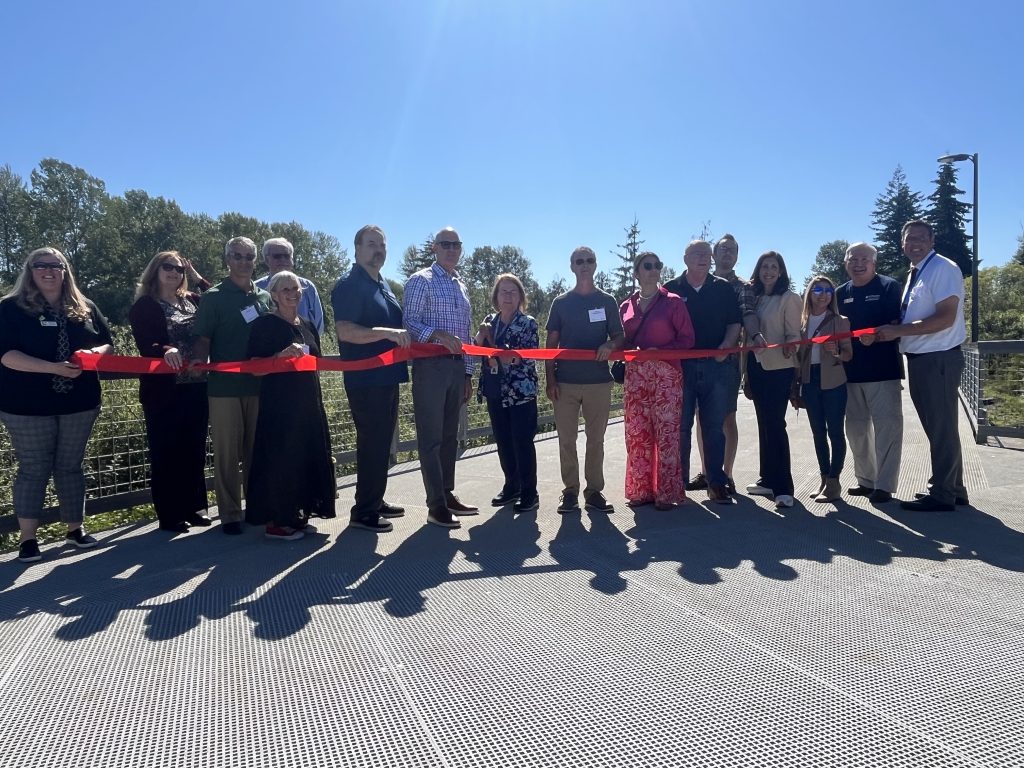
As the sun shined down with its 80-degree rays of approval, the future Link light rail could be seen and heard from the not-too-distant tracks running tests in preparation for its opening on August 30. Occasionally Zip shuttle cars pulled in to the parking lot, each representing Lynnwood’s future as a multimodal transportation hub.
“Lynnwood is home to some of the region’s most spectacular public parks and trails and Scriber Creek Trail is no exception,” said Lynnwood Mayor Christine Frizzell Monday. “The boardwalk connects the natural beauty of Lynnwood with the built environment and the future city center…maintaining the heart of our parks and trails is paramount and it requires a solid vision to connect the needs of the present to the growth of the future.”
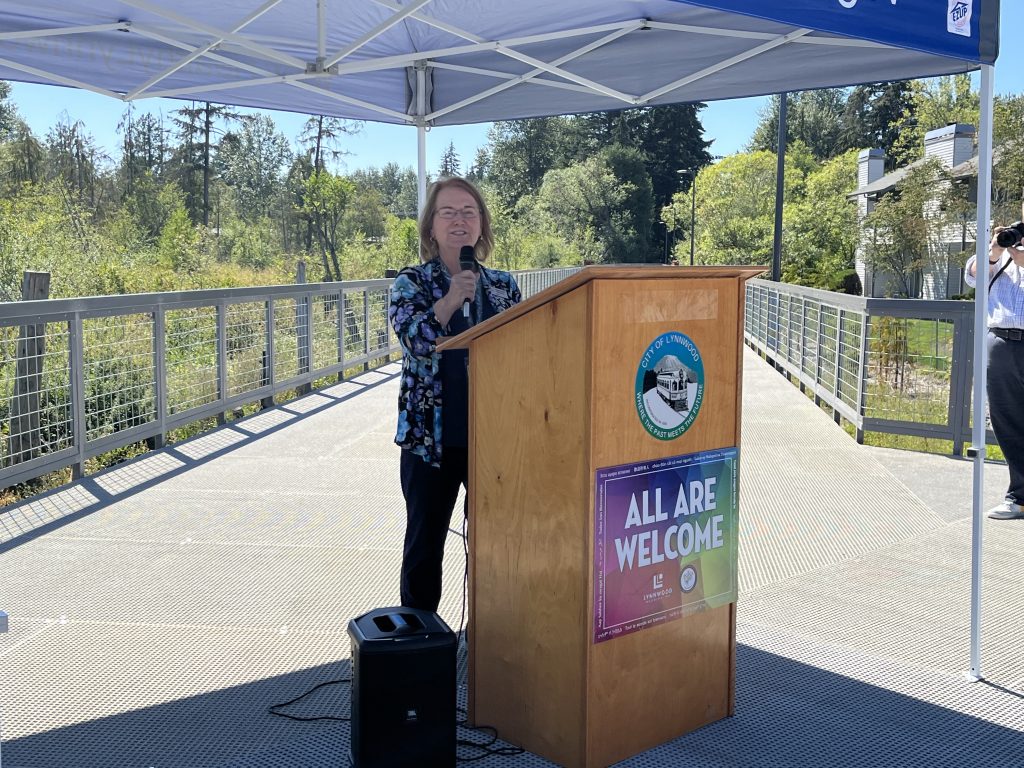
The one-mile Scriber Creek Trail was originally developed in 1991 but failed to meet several ADA requirements and was closed for much of the fall and winter due to annual flooding. Additionally, as the city grew so did the marsh rendering much of it unusable.
Still, according to captured cell phone data, Scriber Creek Trail accommodated nearly 200,000 trips annually. Now with its improvements Lynnwood officials expect to see usage double.
The new, and improved, Scriber Creek Trail replaces the narrow at-grade trail with a 12 foot to 16 foot wide accessible trail, adds pedestrian lighting – the first ever for a city trail, adds slip resistant material, and elevates the trail above the wetland, stream, and peat-bogs below protecting it from flooding as well as the numerous wildlife that calls it home.
These improvements will allow year-round access for all ages and abilities, provide multimodal connects to the Lynnwood Transit Center, increase opportunities for outdoor recreation, improve stream and wetland hydrology while creating a climate resistant infrastructure, and illuminate commuter access through the park, the city says.
Several key community partners were pivotal in securing the $11 million price tag for the project including U.S. Representative Rick Larsen, Sound Transit, Puget Sound Regional Council, WA Department of Transportation, Community Transit, Lynnwood Parks and Recreation Foundation, and Friends of Scriber Lake.
Many of these community partners shared their remarks Monday beginning with Rep. Rick Larsen who helped secure $1 million for the project through the 2021 Congressional Directed Spending Program.
Larsen began by standing in solidarity with Corey Comperatore who was killed during the attempted assassination on former President Trump over the weekend. He added that political violence, and violence in general, has “no place in our Democracy or our country,” reiterating the words of President Joe Biden: “We settle these things with ballots and not bullets.”
“[The Scriber Creek Trail] is a testament to the hard work and vision of the local officials here in south county, and Lynnwood in particular, to the community leaders and residents that call this place home,” said Rep. Larsen. “Today thanks to state and federal partnerships, strong leadership and collaboration, the work of very effective project managers, and of course tax payers who provide the funding, residents and visitors will now be able to visit this safe, accessible, and dry trail to access nearby neighborhoods, parks, trails, and other modes of transportation.”
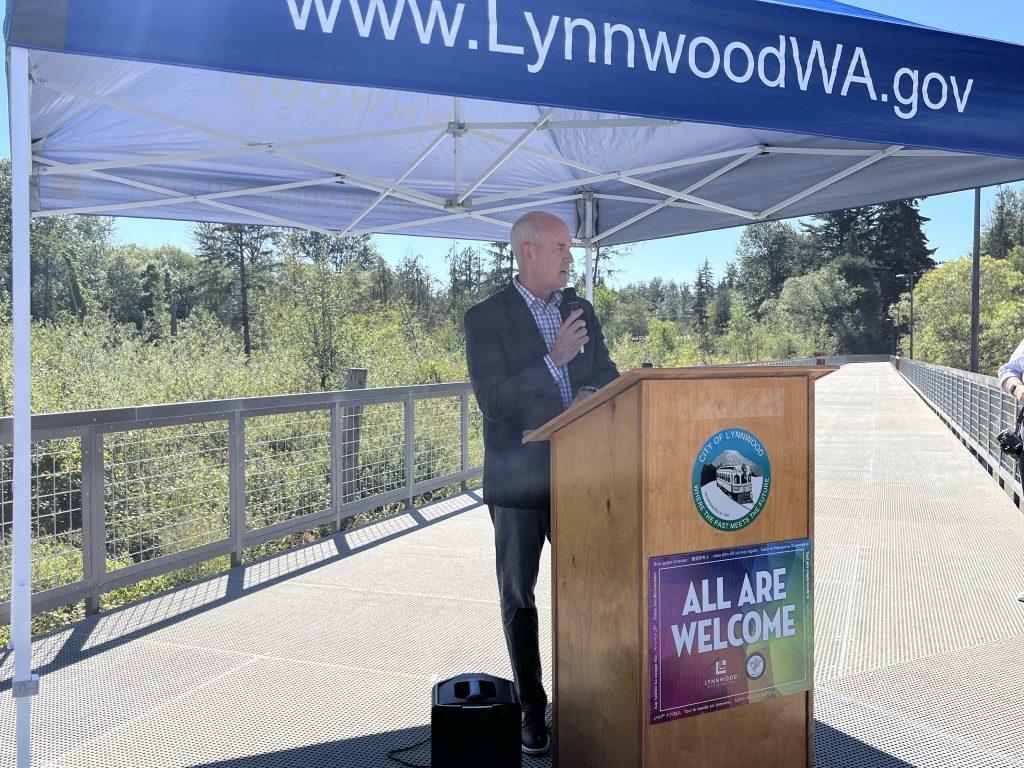
Larsen joked that he’s been visiting Lynnwood so often lately, announcing earmarks or funding, attending ribbon cuttings and groundbreakings, and so on, that he feels like the “Deputy Mayor of Lynnwood.”
Senator Jesse Solomon followed Rep. Larsen adding that the Scriber Creek Trail has been a shining result and example of how working with voters’ to hear their priorities comes to fruition.
“We are densifying. We are adding more people to the same amount of land,” said Sen. Solomon. “So we need to make sure there are green spaces that are accessible for people. We know that green space is essential for mental health, finding a sense of connection, and it’s also good for animals…I’m proud to continue and offer to continue our City of Lynnwood and our state’s tradition of improving local spaces and local communities.”
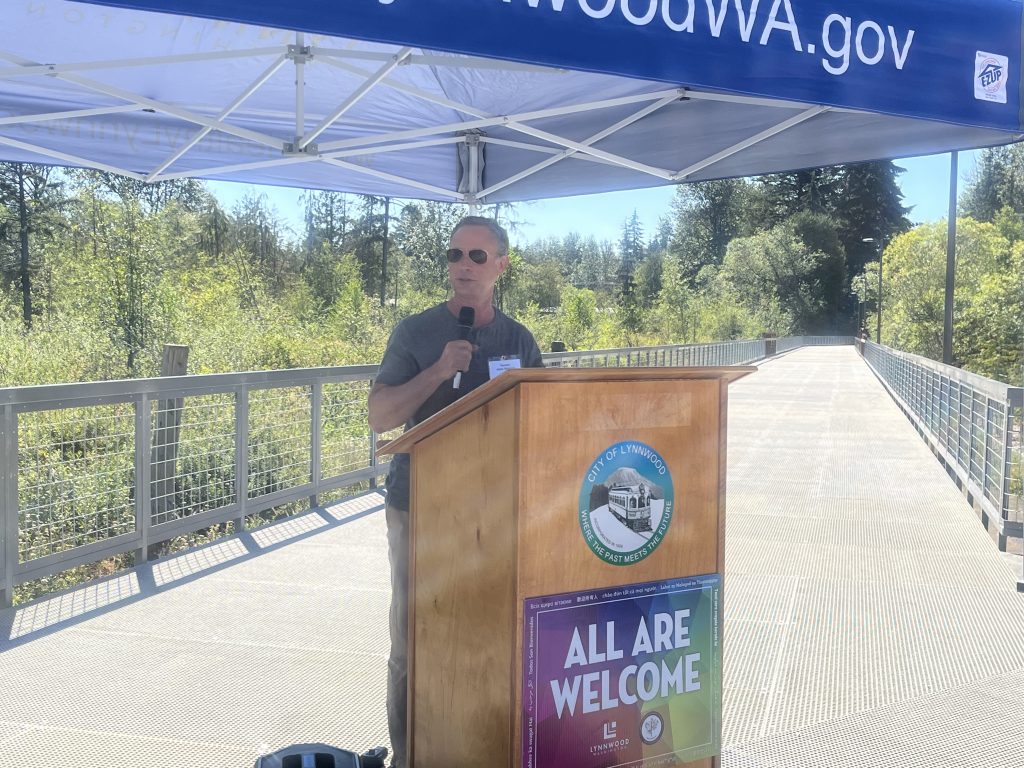
Speaking on behalf of Sound Transit, who first recognized the importance of the Scriber Creek Trail’s connection to the Link light rail station and made two separate investments to the project totaling $5 million, was Terri Mestas, Deputy CEO of Mega Capital Projects for Sound Transit.
“This project upgrade the trail to accommodate both bicycles and pedestrians, it also makes critical safety improvements including separating the trail from the roadway and using durable, slip resistant, materials and it brings the trail into ADA compliance,” said Mestas. “This trail is a vital connection to the Lynnwood Transit Center where riders with its increased access will be served by light rail, bus services, and other modes.”
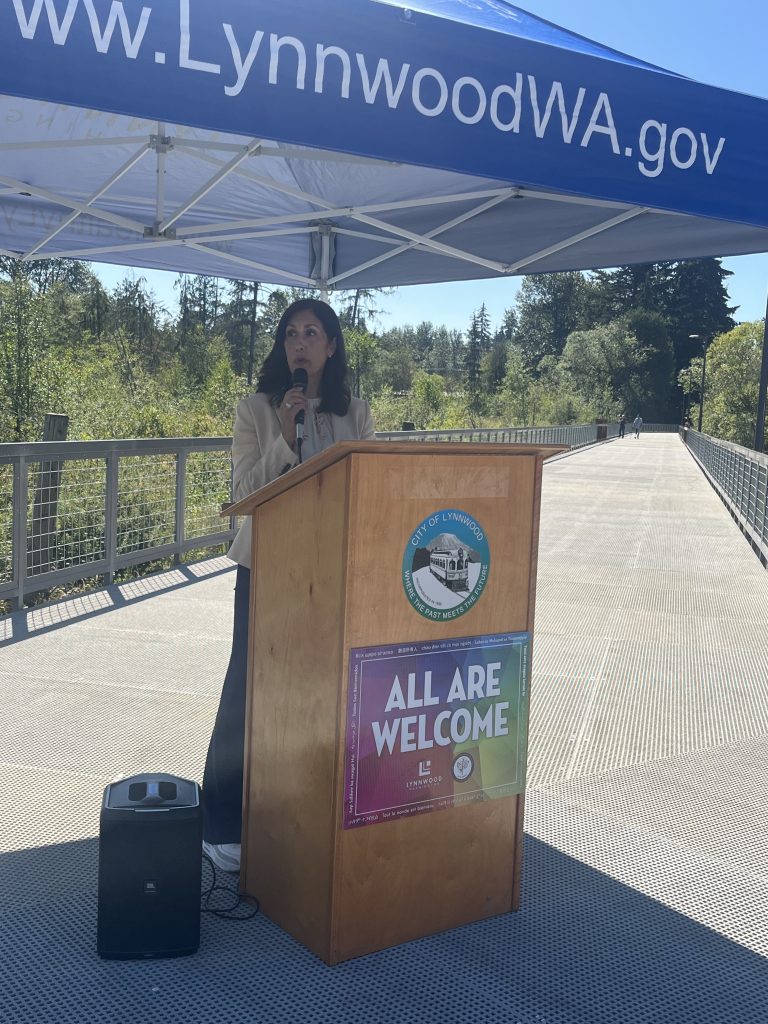
Mestas added that Sound Transit anticipates anywhere between 8,700 to 12,000 average weekly boardings by 2028 with most of the riders arriving by bicycle, transit, or walking. The Scriber Creek Trail improvements, Mestas continued, creates a broader access to the community.
The Puget Sound Regional Council also contributed an impressive investment to the project totaling $1,450,000 through its 2020 PSRC Congestion and Mitigation and Air Quality (CMAQ).
To speak on this contribution was Kelly McGourty, PSRC Director of Transportation Planning.
“As a region we are planning together for a safe, equitable, integrated system that provides convenient and safe options for all modes of travel,” said McGourty. “Because of projects like this one more residents will have access to transit to get to their jobs, schools, shopping, and wherever they wish to go.”
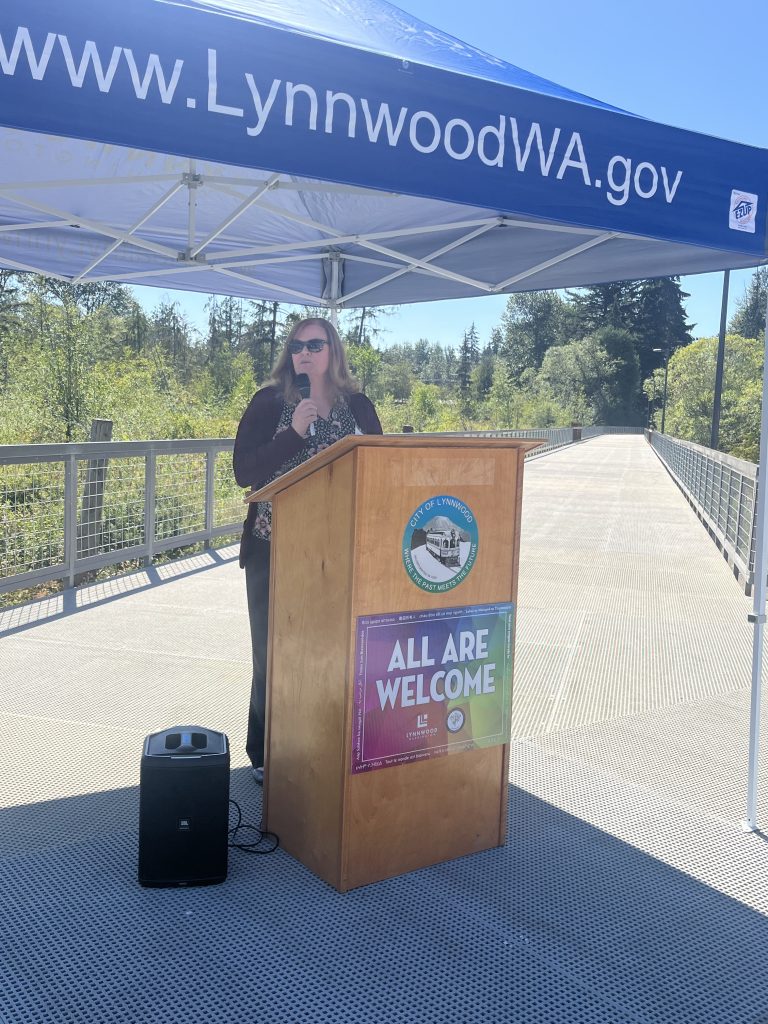
Mehrdad Moini, Washington State Department of Transportation Local Programs Engineer, was scheduled to speak on WSDOT’s two separate contributions to the projects – a $675,000 Ped/Bike Program grant in 2016, and an additional Ped/Bike Program grant in 2020 – but had Jay Drye speak on his behalf as he encountered traffic-related issues.
Between each of these speakers Joel Faber, Interim PRCA Director for the City of Lynnwood, shared information about the project before inviting each guest to speak.
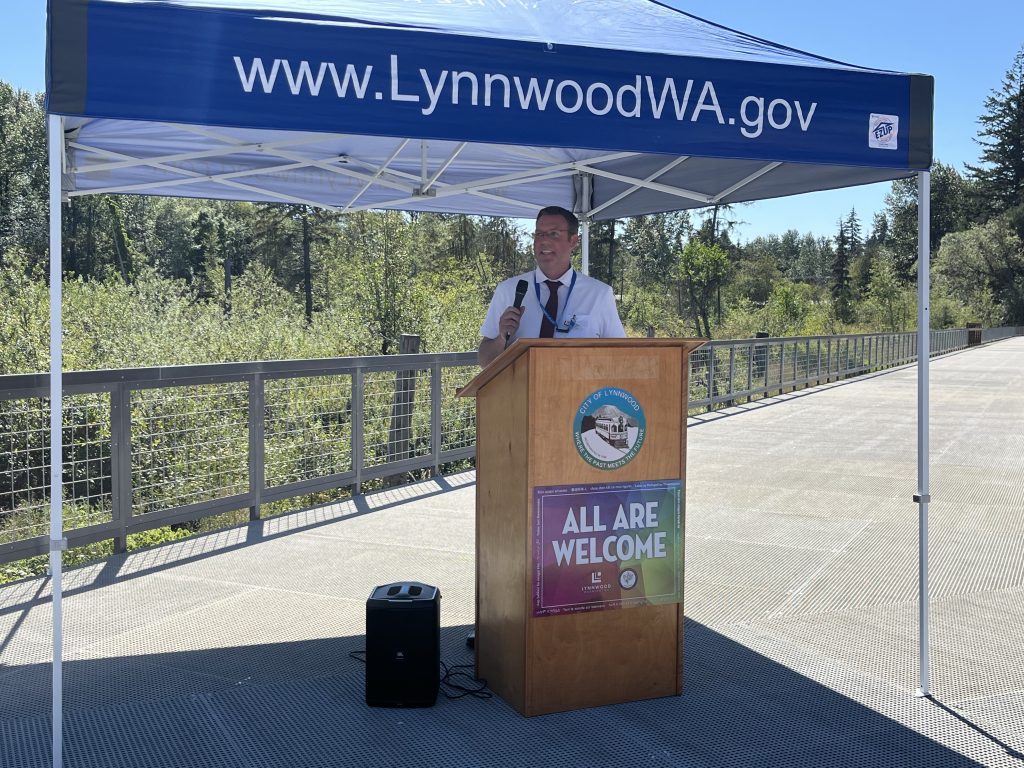
Other speakers included Lynnwood City Council was President George Hurst who stressed the importance of the improved trail’s accessibility, Lynnwood Parks and Recreation Board Member Tom Krause, an avid baseball fan who called the project a “home run” for Lynnwood, and Sarah Olsen, PRCA Deputy Director, who shared information about the project’s history.
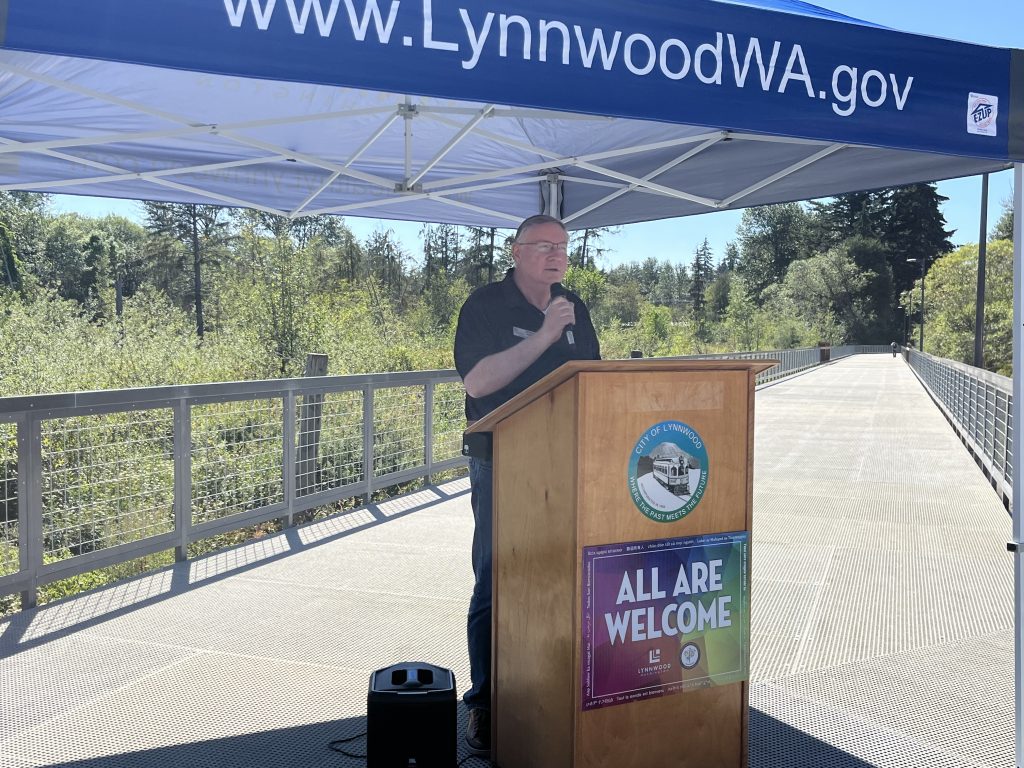
Also in attendance was Lynnwood City Council Vice President Dr. Julieta Altamirano-Crosby, Lynnwood City Council members David Parshall and Nick Coelho, and Lynnwood’s newest City Councilwoman Derica Escamilla who took her oath of office that evening.
As each of these speakers shared their remarks, Laurie Loeber, Enrollment Secretary with the Snohomish Tribe of Indians, blessed the land by wafting burning sage over the trail.
Phase 3 of the Scriber Creek Trail project will continue to make critical upgrades to the 4,000-linear‑foot section of shared‑use path from the Lynnwood Transit Center, extending to Wilcox Park.
Phase 1 of the project, which connects the Interurban Trail to Scriber Creek Park along the south-southwest edge of the future light rail station, was completed by Sound Transit as part of its Lynnwood Link Extension project.
These improvements now offer a nonmotorized transportation connection between Lynnwood’s Regional Growth Center and City Center Sub-Area, the Interurban Regional Trail, the Lynnwood Transit Center, and the future Lynnwood Link light rail station and SWIFT bus-rapid transit routes on 196th St SW (SR 524).
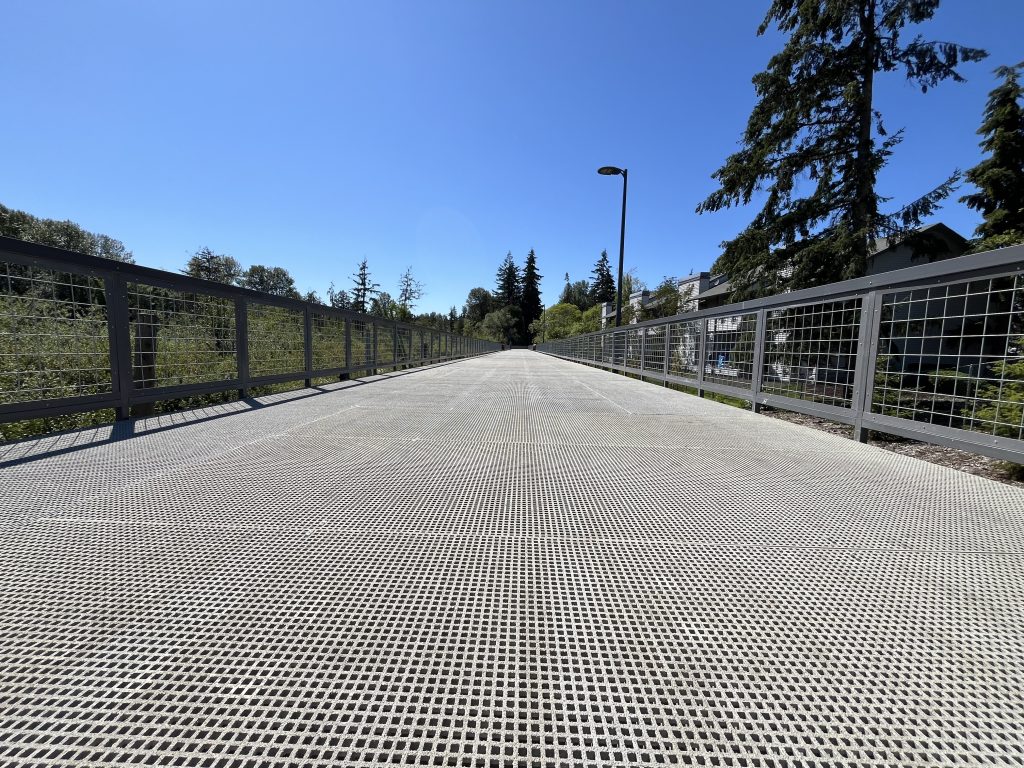
Author: Kienan Briscoe













2 Responses
It’s Easy for Politicians to create parks and trails. What happened to creating jobs it’s not easy for politicians right?
You don’t live in Soviet Union, government isn’t creating jobs for you. And parks do create construction jobs and maintenance jobs